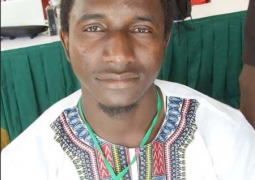The Gambia’s rice production capacity has been increasing as the country produced 51,350 metric tonnes of rice in 2009, with imports equivalent to D826 million Import soared to 135, 000 tonnes in the same year, according to Gambia Bureau of Statistics and Department of Planning.
This was revealed on Monday by Sulayman Jallow, Principal Research Officer at the National Agricultural Research Institute (NARI), while presenting a paper on “Government Policy Concerning Rice Value Chain in The Gambia” at a one-day validation workshop on a study on “Rice Value Chain in The Gambia”.
The workshop was organised by the National Farmers Platform at its secretariat in Kanifing.
The study was commissioned by a team of consultants from VECO Senegal/Gambia, led by Mr Baiti Ndoye.
Sought to examine the rice sub-sector in The Gambia, the study’s validation brought together representatives of different farmer organisations across the country, experts in food production, government officials and consumers to brainstorm on the findings and make recommendations and suggestions to authenticate the document.
Mr Jallow’s paper presented at the workshop was one of the Gambian experts’ inputs to the study, and is meant to complement the main study done by VECO.
Mr Jallow describes rice as not only the staple food for The Gambia, but also the second most important cereal in the world. He adds that the Gambia National Investment Plan (GNAIP) envisions among other things, the issue of food security in The Gambia.
The proposed interventions in the GNAIP are expected to achieve at least 8 per cent growth in agriculture sector from 2011 to 2015, said Mr Jallow.
In her welcoming remarks, the national coordinator of National Farmers’ Platform, Marie Adams, said the day was an important milestone in the evolution of farmers’ efforts to maximize income for themselves.
She says food security is becoming paramount in the development agenda of developing countries like The Gambia. “If we cannot produce what we eat, it will undermine our capacity to explore other ventures of life,” Ms Adams said.
Musa Jawneh, president of Farmers Platform, said farmers should be wary of being dependent on outright assistance.
Farmers should learn to be able to do their production in an independent way, without relying on too much aid Mr Jawneh says, adding: “Most of the projects that have come for Gambian farmers were not sustainable due to this culture of dependency. As soon as the projects phase out, everything collapses.”
He thanked President Jammeh for “championing the cause” of farmers in the country as well as for his personal contribution to food production in The Gambia.
Mr Jawneh says that of concern to the study is the challenge of farmers in ensuring food sufficiency, particularly considering that rice is a staple food in the country. “Your inputs and suggestions will go a long way in meeting the goals of the study,” he said.
The focus of the study, according to Mr Jawneh, “is how to ensure food sufficiency and to minimise the importation burden on the country, while maximizing the local production to feed ourselves”.



